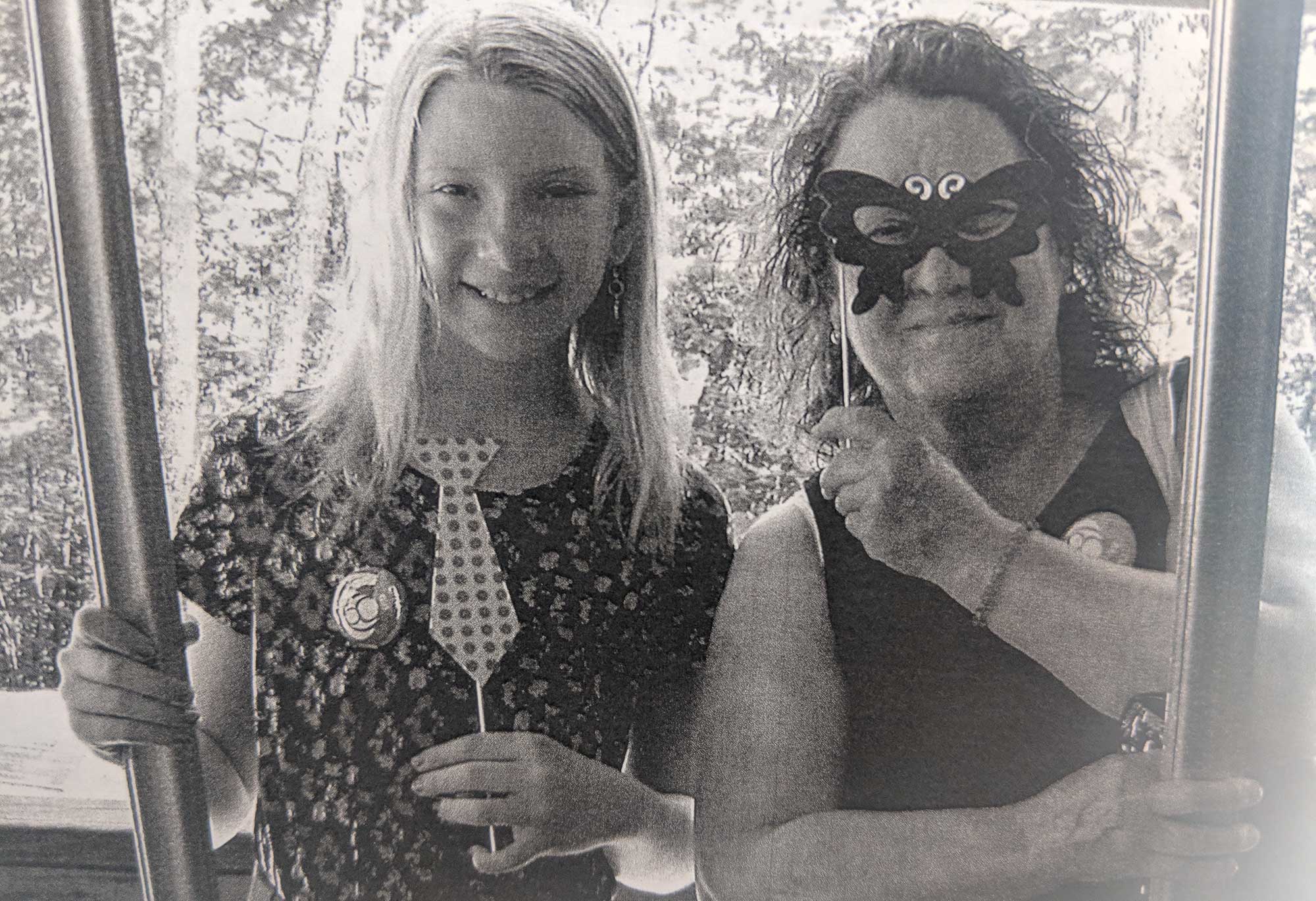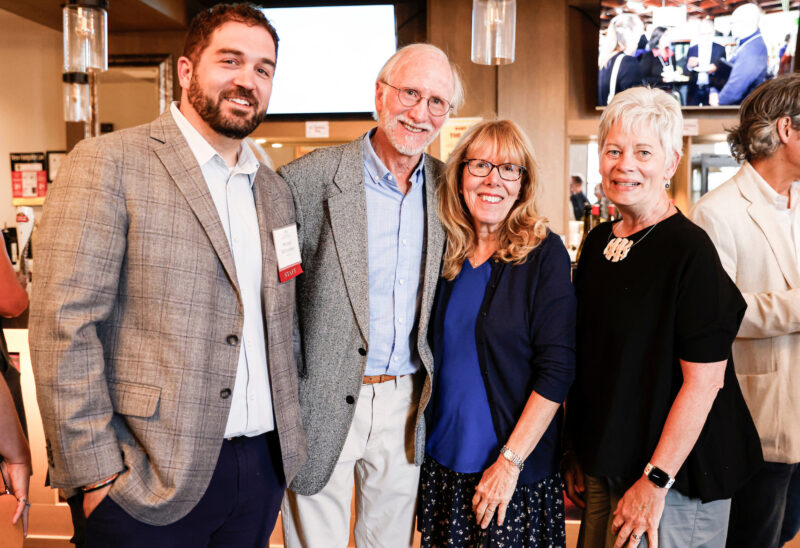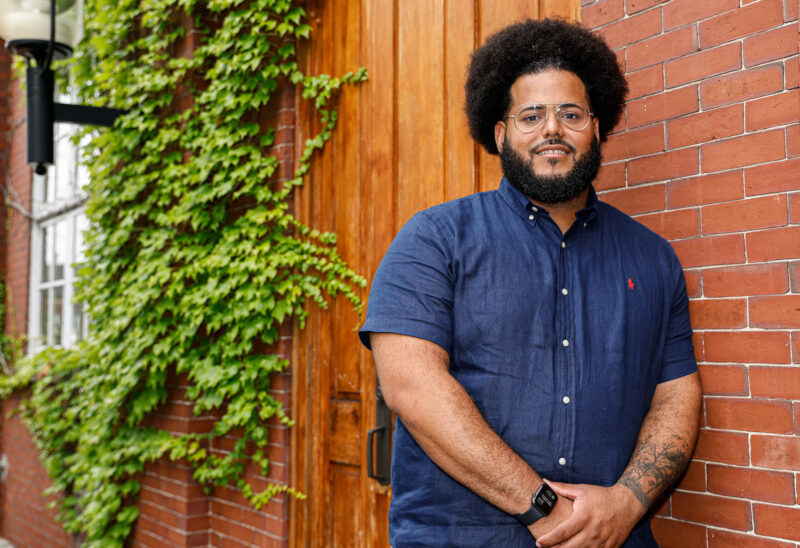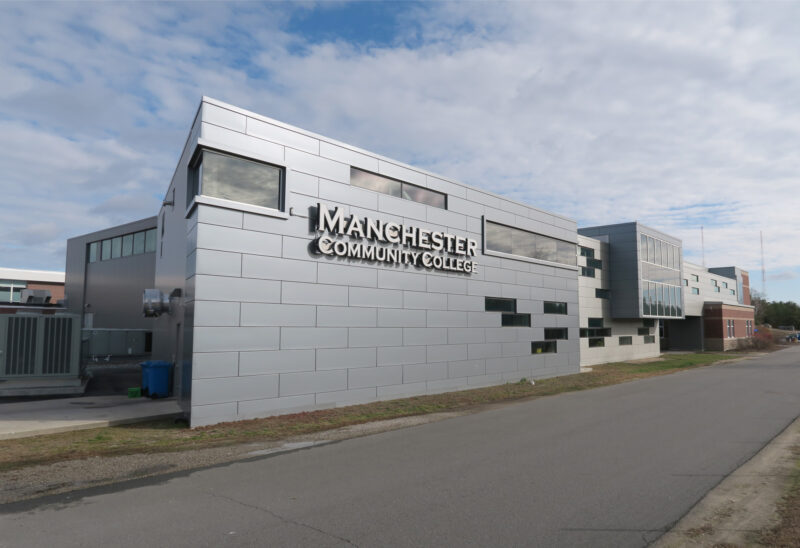Every morning, 12-year-old Alivia Menth can’t wait to go to camp. Even if that means turning on her computer and launching Zoom.
This is Alivia’s first “teen” summer with the Circle Program, a mentoring organization that connects girls with year-round mentors and usually brings 75 or so girls to Spectacle Pond in Groton in the summer for weeks of kayaking, hiking and other outdoor activities. For the past two years, Alivia went to Circle’s “girls” camp, participating in programming designed for the organization’s youngest students. She had been looking forward to attending this year as one of the big kids, and was disappointed when she heard that because of the Covid-19 pandemic, the Circle Program had to cancel its in-person summer program.
But virtual camp has turned out to be far more than she had expected, she and her mother, Nicole Riley, say.
“At first we were like, what are you talking about, virtual camp?” Riley says. “But it’s been amazing.”
Before the session began, Circle staff made sure that each participant had the needed technology to participate, and helped fill in technology gaps where needed. Every week, the Circle Program staff send “tool kits” to campers with materials for activities — everything from seeds and soil to art supplies. There is a plan for each day, and a food box with fresh produce for families. Log-on information lets the girls connect with each other and with counselors, who might take the girls on hikes — virtually — or lead a craft.
“They’re making it fun,” Alivia says.
Across New Hampshire, organizations such as the Circle Program are making these sorts of adjustments to programming and finding new ways for staff, mentors and children to connect at a time when it is harder to do so — and, arguably, more important than ever.
Increased isolation and growing financial insecurity are creating more challenges for families across the state, says Tym Rourke, director of the New Hampshire Charitable Foundation’s “New Hampshire Tomorrow” initiative to help equalize the chances of success for young people regardless of race, family income or ZIP code. Mentorship programs, whether in the form of camps, one-on-one relationships or aftercare programs, help children to thrive.
“When we think about how to build resiliency with kids at every age and stage, one of the predictive indicators is a child’s relationship with a non-parent adult,” Rourke says. “That understanding is the basis of mentoring programs in general. But it makes them even more critical right now, when children have really limited access to teachers, coaches and adults who might act as mentors in their lives.” But nonprofits have also faced challenges. Many groups have had to cancel fundraisers, while others seen some donations decline as some donors shifted to Covid-19 related emergency efforts.
The Charitable Foundation has released payments of multiyear operating support early as well as making additional grants to mentoring organizations around the state. The adaptability of nonprofit organizations, Rourke says, has been stunning.
“I have to admit, I had been expecting to hear that groups had temporarily shut down operations,” Rourke says. “But many of them have been figuring out new and innovative ways to stay connected.”
Mentors and children with Big Brothers Big Sisters of New Hampshire, for instance, have competed in virtual scavenger hunts and have eaten pizza together over Zoom. At the Mayhew Program, a year-round mentoring program for boys with a summer camp at Newfound Lake, campers unable to gather in person have played online soccer and chess. The Boys and Girls Club of Greater Nashua lent its fleet of vans to help distribute food aid throughout the city, and also provided emergency childcare to children of essential workers with help from a Foundation grant.
“There is just story after story of people overcoming this pandemic and keeping those connections,” says Stacy Kramer, executive director of Big Brothers Big Sisters New Hampshire, which also distributed food baskets and care packages for the children in its program, with healthy snacks, art supplies, hand sanitizer and masks, among other goodies. “We’ve had to be creative.”
That was certainly true for Alivia and her mentor, LuCynda Anderson, who is retired from a career in the fashion industry. At first, they connected by video call.
“I was doing FaceTime with her every Sunday morning,” Anderson recalls. “It was a lot more fun than I thought it would be.”
But the pair was used to baking and hiking and playing outside. So soon Alivia took Anderson for a “walk” in the garden, while from the other side of the screen Anderson helped identify plants. Since then they have talked across a driveway and, more recently, have met up for a socially-distanced playdate with Anderson’s new Labrador Retriever puppy.
Circle Program Executive Director Chelsea Francek says this is typical: often times it has been the mentee coming up with new ways to keep relationships going during the pandemic. One child, for instance, gives her mentor art lessons every week, demonstrating how to draw anime characters.
These bits of connection have been crucial for both mentors and mentees, says Mayhew Program Executive Director Jim Nute — even if they can never compare to in-person interactions.
“When it comes down to it, what kids need, and what we need as people, are pretty basic things,” he says. “You need someone who is willing to listen … and also cheer you on and remind you how capable you are in your lowest moment. You don’t have to be on an island in the middle of Newfound Lake to do that.”
Nonprofits need help more than ever to sustain operations and respond to community need. Please consider giving to help support their critical missions. If you are a fund-holder at the Charitable Foundation and would like to use your fund to address increased community needs during this time, please call 1-800-464-6641 and choose option three for donor services, or email qbabefreivprf@aups.bet.













![Rev. Heidi Carrington Heath joined Seacoast Outright. [Photo by Cheryl Senter]](https://www.nhcf.org/wp-content/uploads/2024/05/Heidi-Carrington-Thumbnail-800x548.jpg)
![Dr. Jennie Hennigar treats a patient at the Tamworth Dental Center [Photo by Cheryl Senter]](https://www.nhcf.org/wp-content/uploads/2024/05/TCCAP-Hero-800x548.jpg)

